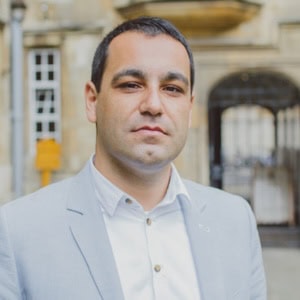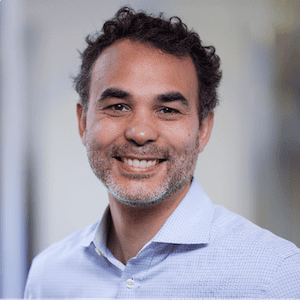-
Two Trends and a Caveat: The Three Factors That Will Define Impact Investing’s Future
New players in impact investing will benefit everyone across the value chain, from investors to end users, who focus on underserved populations to have impact at scale, writes Jean-Philippe de Schrevel, founder and managing partner at Bamboo Capital Partners. Meanwhile, technological innovation will continue to propel the industry. But he also cautions that big momentum means big expectations – on both investors and investees – to deliver on their promise to generate both financial and social returns.
- Categories
- Investing, Technology
-
The Secret to Social Business Scale? An Overlooked Need in Moving Past the Startup Phase
How can social entrepreneurs move from the startup phase into the growth phase? Whatever the focus of their business, entrepreneurs have to build capacity to benefit and employ more people as they scale – and this requires a unique set of skills. Carola Schwank at Siemens Stiftung Foundation discusses the crucial but often overlooked need of organizational development in social business, and describes how the foundation is helping entrepreneurs address it.
- Categories
- Social Enterprise
-
Finding Hidden Talent in a Kolkata Suburb: An Innovative Solution for Youth Employment in India
With more young people entering India's workforce than ever before, creating the next generation of jobs is one of the country's biggest challenges. That's why iMerit’s delivery center in Kolkata – along with four other centers like it in east Indian cities – is employing hundreds of young men and women from low-income families to provide on-demand digital data services to leading global internet companies. Santhosh Ramdoss at the Michael & Susan Dell Foundation, an investor in iMerit, profiles the company and shares an interview with its founder.
- Categories
- Investing, Technology
-
Bridging the Gender Gap in Agriculture: Eight Success Stories for International Women’s Day
Women account for more than 40 percent of the agricultural workforce worldwide, but they own less than 20 percent of the world’s land, and earn just a fraction of what their male counterparts do. On International Women’s Day, Oumou Camara, writing on behalf of Farming First, shares the stories of eight remarkable women who are bridging the gender gap in agriculture in emerging markets around the world.
- Categories
- Agriculture, Impact Assessment, Social Enterprise
-
Four Steps to Avoid Dead-End Impact Investing Leads
Dead-end leads are frustrating for both entrepreneurs and investors. They involve wasted time and resources, disappointment, and the erosion of relationships – and sometimes the exchange of capital that's a poor fit for the entrepreneur’s business. To prevent these issues, the Center for the Advancement of Social Entrepreneurship (CASE) has created an online toolkit to help impact entrepreneurs identify their top investor targets. Kimberly Langsam and Cathy Clark at CASE summarize the simple four-step process – and CASE will host a free online demo with more information on March 13 and 19.
- Categories
- Impact Assessment, Investing
-
Impact Investing Lessons for NGOs: Mercy Corps’ Scott Onder Discusses its Social Venture Fund
We don’t typically associate NGOs, particularly humanitarian organizations like Mercy Corps, with impact investing. But since 2015, Mercy Corps has run the Social Venture Fund, which invests in and accelerates the growth of innovative, scalable ventures that can positively impact millions in the developing world. NextBillion interviewed Scott Onder, managing director of the fund, about Mercy Corps' experiences as an investor, the rationale behind this ground-breaking approach – and lessons for other NGOs that may be considering a similar move.
- Categories
- Impact Assessment, Investing
-
Breaking the Catch-22 of Poverty: What’s Next for the Graduation Model?
People in extreme poverty are trapped in a catch-22: They're poor because they can't build a livelihood, and they can't build a livelihood because they're overwhelmed by the crises of poverty. The graduation approach can break this cycle – but though research has demonstrated its effectiveness, it's difficult to scale. Evelyn Stark of MetLife Foundation and Jaya Sarkar of Trickle Up discuss Trickle Up's efforts to adapt the model to achieve mass scale and sustainability.
- Categories
- Impact Assessment
-
More than Money: Changing Financial Services One Startup at a Time
The Financial Solutions Lab – managed by the Center for Financial Services Innovation (CFSI) with founding partner JPMorgan Chase & Co. – is looking for fintech startups and nonprofits to compete in its $3 Million Challenge to help underserved people. Winning organizations will receive a $250,000 investment. The fintech innovators who will rise to the top, writes CFSI's Shannon Austin, are those solving real financial problems faced by real people – often the same problems experienced by the founders themselves.
- Categories
- Finance, Technology










